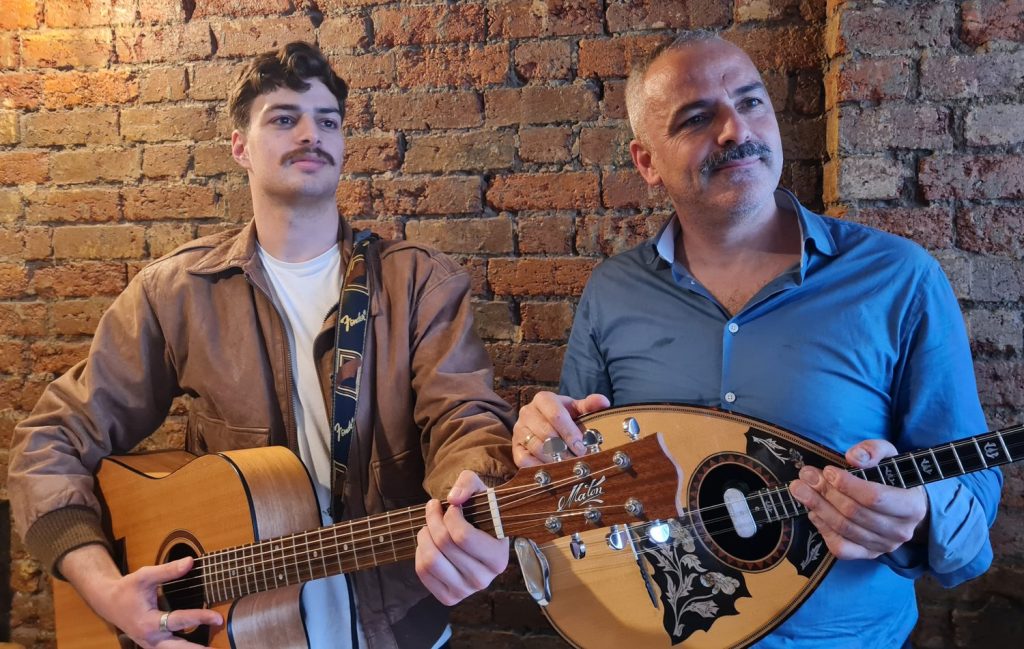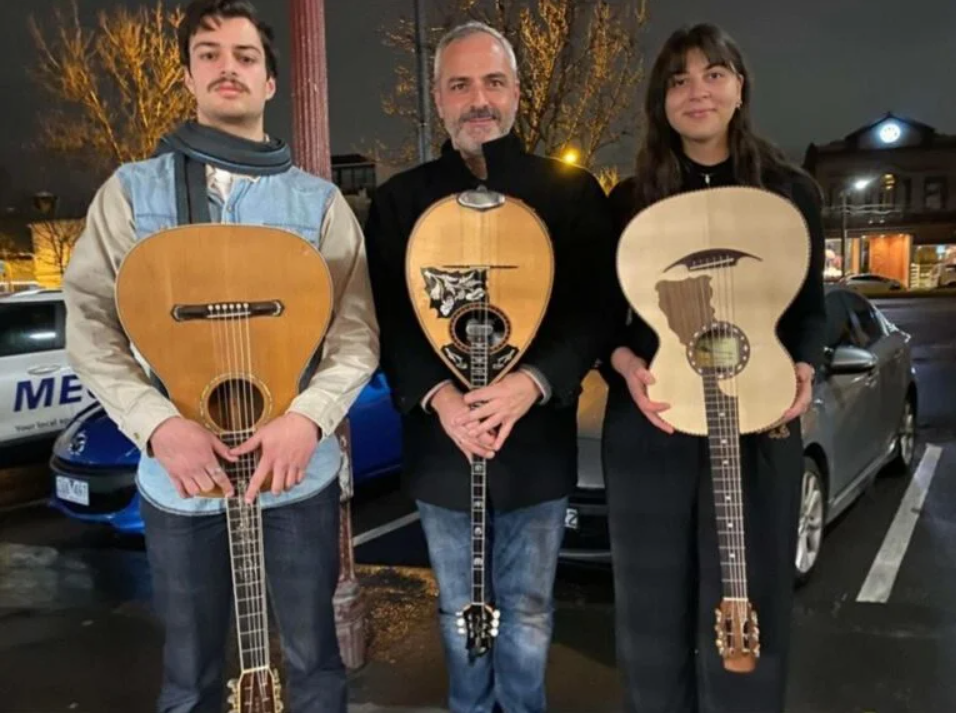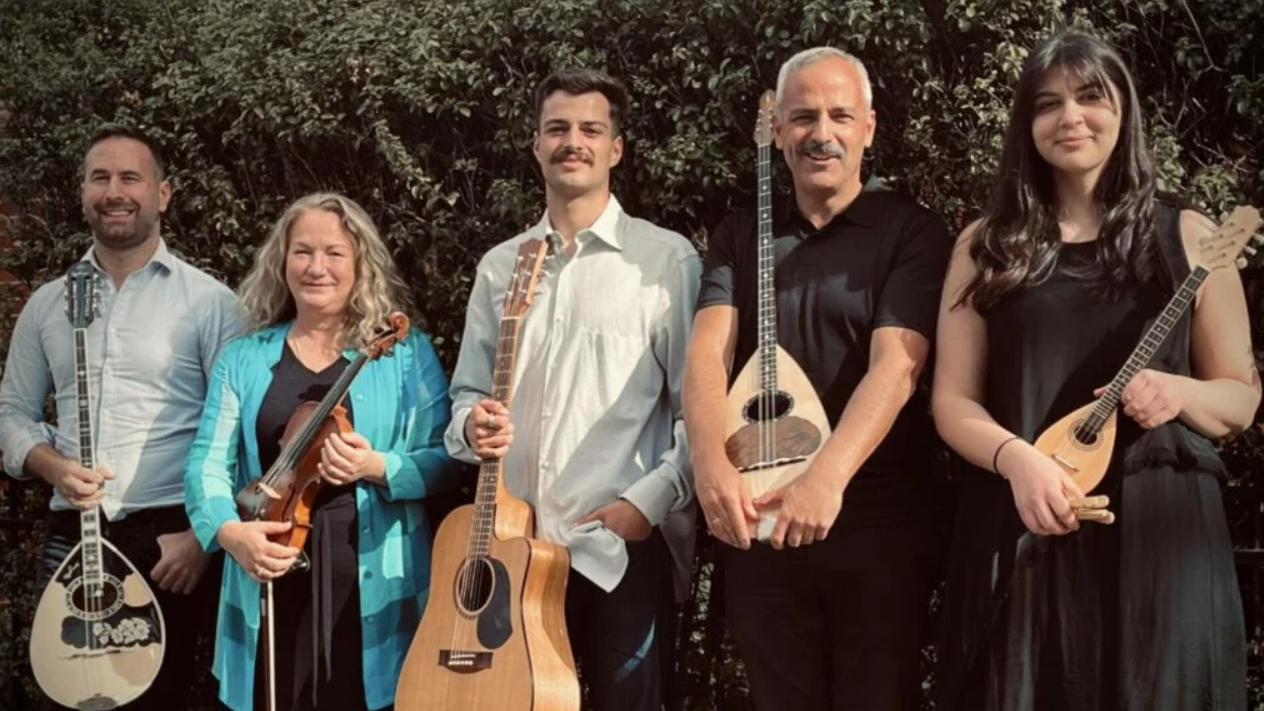Alex Petropoulos is a young 22-year-old passionate about rebetika – a music genre that is decades old.
This passion led him to join the rebetika band Tsiftes in Melbourne, Victoria, which is also comprised of rebetika veteran Con Kalamaras, young “Rebetissa” Stav Thomopoulos, classical violinist Jenny Dixon, and Greek musician Nikos Kapralos.
Just recently, the band has been invited to perform at Melbourne’s iconic jazz venue Bird’s Basement. The bands’ performance of Greek rebetika will be the first of its kind at the venue, making history.
Ahead of the event on Friday, April 28, The Greek Herald spoke to Petropoulos about his passion for the music genre and the upcoming performance.
Tell us about yourself – how old were you when you started playing music and more specifically rebetika?
I first started playing classical violin when I was three, which I continued on and off until age 17. I only discovered rebetika in August of 2021 and began playing in March 2022 after feeling inspired by hearing Con and Stav playing at a local rebetika jam. I informally learned the guitar as a teenager and saw this as the easiest entry point into playing rebetika.
Why do you love rebetika? How does it make you feel?
The things I love about rebetika are the passion in the music and the depth. None of the lyrics are superficial. I like the heavy sound of the music and the interesting scales and diversity of instruments that are used. Listening to rebetika gives me a soulful and passionate feeling. You can connect with the struggle that the composers had at the time. It can also be very invigorating, like listening to heavy metal.

How would you describe rebetika to someone who has never heard of it?
Lyrically, rebetika is similar to the blues in the sense that the content is heavy and usually sad. I would describe early rebetika as sounding quite eastern. When I used to hear some of the more eastern sounding melodies, I’d think it sounds like “snake charmer music.” It is also very stripped back, sometimes only a guitar, bouzouki and vocals. To someone who has never heard it, I would say to picture yourself in a little hash den in Turkey in the 1880s and imagine what music you might hear there.
How does it feel that Bird’s Basement has agreed to host Greek music for the first time ever?
It is very exciting for us. It feels surreal to be playing such a niche music in such a profound venue. We’re grateful that Bird’s Basement has given us the opportunity to share this music with people.
What can people expect from the day? What do you hope the take away from it?
Logistically, people can expect a formal sit-down show and dinner with a concert type atmosphere. You will hear a good mix of pre and post war rebetika. Expect some familiar tunes and also a lot of unfamiliar ones. We have tried to pick some pretty interesting songs, songs that are quirky and atypical in some way. We have a fantastic violinist Jenny Dixon who has blown us away so we’re very excited to have her in the line-up. The addition of a violin means that we can access more pre-war rebetika songs in which the violin was present.
In terms of what we want to take away, we hope that people enjoy the show we’ve worked so hard on and we’re keen to gain experience from playing such a formal show. We also see the show as a big step for us as a band and we’re just excited at the opportunity to play together at such a great venue.
Why is playing rebetika music important and relevant today (especially for the younger generations)? Could you also briefly explain the historical relevance of the music genre.
Rebetika is making a resurgence with young Greeks in Melbourne. I think young people are drawn to the social connection that playing music in a group provides. It is a great night out to sit around a table with ten others and play such amazing and significant music. It gives us a feeling of connection to our heritage which I believe many young people are craving. I think that music and culture have become more and more homogenised over the past century which has led many people to feel like they are grasping for a sense of identity and belonging.

Rebetika for me provides a link back to my heritage and enables me to feel connected to the culture in which my grandparents were raised, as well as the generations before them. For me, rebetika is important because it represents a significant era in Greek history. It is a raw music which was birthed from a lot of suffering and pain for millions of refugees.
The historical context is one of the factors which draws me to the music the most. The rebetika that we play, which is mostly from Athens and Piraeus, occurred as a result of the forced mass exodus of Greeks out of Smyrna and other Turkish cities in 1922. There was an influx of around a million refugees into Athens and Piraeus. Athens and Piraeus did not have the infrastructure to accommodate this mass influx, and slums had to be quickly built to house all the refugees. The quality of life for these refugees was poor and there were constant struggles. These struggles are what inspired the music of the rebetika.
The refugees brought with them an eastern sound and style of playing, as well as good technical music skills. The rebetika we play was born mostly from these migrants and describes their lives in the slums of Athens and Piraeus.
Final comments.
We’re so excited for this show. There has been heaps of anticipation and preparation, as well as
countless hours rehearsing and it’s going to be an amazing feeling when it all comes to a head next
Friday night. We hope to see you all there!
Tsiftes will be performing at Bird’s Basement on Friday, April 28. You can purchase tickets at: https://bit.ly/40wxHvy

